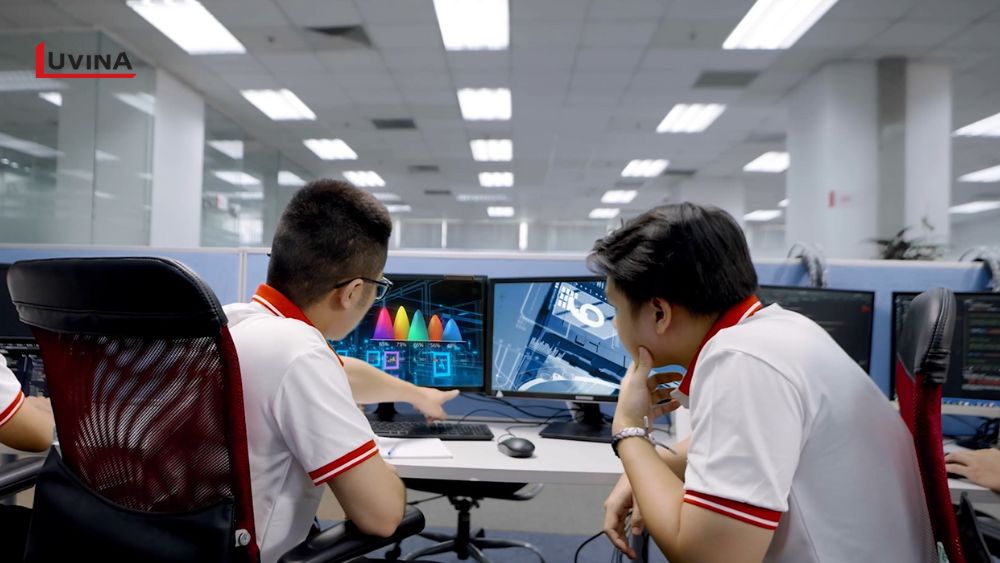There is a huge demand for AI developers now. Businesses across industries are racing to leverage artificial intelligence to gain a competitive edge, streamline operations, and drive innovation. However, with so many aspiring AI engineers, it has become difficult to discern between highly brilliant experts and those who are still refining their talents. This is a method to differentiate talented professionals from wannabe individuals.
Are you looking for a consultant or employee specializing in artificial intelligence? These 8 traits, which were gathered via expert email interviews, are what you should be looking for in any internal or external AI development applicant.
Technical Skills Every AI Developer Needs
1. Essential AI Knowledge
AI developers must have a solid understanding of generative AI and large language models (LLMs), the core of modern AI systems. This knowledge enables the creation of intelligent applications capable of generating human-like text and understanding natural language.
UX design principles are also crucial. Developers must create user-friendly interfaces that enhance the user experience, ensuring applications are intuitive and accessible.
Security and risk management are essential. AI developers must protect their systems from vulnerabilities, understand encryption, practice secure coding, and conduct regular security assessments.
Lifecycle management of LLMs is important for maintaining, updating, and fine-tuning models to keep them effective. This involves ongoing training and performance monitoring.
Familiarity with vector databases and their governance ensures efficient data management and retrieval, which is critical for AI model performance.
Finally, business knowledge is crucial for effective, prompt engineering. AI developers need to translate business objectives into technical solutions, combining technical and business expertise for successful AI implementation.
2. Programming Mastery for AI Developers

Candidate skills should include programming proficiency in languages such as Python and R, advises Kenny Brown, managing director at business advisory firm Deloitte Consulting. These languages are widely used in the AI community due to their robust libraries and ease of use. Mastery of these languages allows developers to write efficient code, implement machine learning algorithms, and build AI models.
Expertise in machine learning algorithms is essential, Brown notes. AI developers should understand various algorithms, such as decision trees, neural networks, and support vector machines. This knowledge enables them to choose the appropriate algorithm for different tasks, optimizing model performance.
Analytical capabilities are crucial for AI developers. They need to analyze large datasets, identify patterns, and extract meaningful insights. This involves data preprocessing, feature engineering, and model evaluation to ensure accurate and reliable results.
The combination of domain knowledge and a heightened awareness of unconscious biases is crucial for AI developers, especially in today’s context, Brown emphasizes. Understanding the specific industry or field they are working in allows developers to tailor AI solutions to meet unique business needs. This ensures that AI applications are relevant and impactful.
Problem-solving skills are vital. AI developers must tackle complex problems, develop innovative solutions, and troubleshoot issues that arise during development. This requires a methodical approach and critical thinking to overcome challenges and deliver successful AI projects.
3. Strong Systems Knowledge
Solid foundational knowledge of AI systems and frameworks is crucial for AI developers, says Eric Velte, CTO at ASRC Federal. Unlike traditional software development, AI development requires specialized skills for maximum benefit. Familiarity with frameworks like TensorFlow, PyTorch, and Keras is essential for building and optimizing AI models.
Velte highlights the importance of statistical validation and a healthy skepticism towards AI model results. Developers must regularly test and refine models to ensure accuracy and reliability. This process helps mitigate the risk of over-reliance on potentially flawed models.
Hiring developers with strong systems knowledge enhances efficiency and secures organizational data. Developers must understand and implement best practices for data security, including protection against breaches and compliance with regulations. This ensures AI solutions are robust, reliable, and secure, driving business success.
4. Data Stewardship: A Key Trait for AI Developers
Beyond technical skills, AI developers must possess strong data stewardship attributes, advises Andrew Fedorchek, CTO of Technology, Data, and Analytics at Mastercard. This involves ensuring security and privacy, maintaining transparency, and controlling data usage. Effective data stewardship is essential for the ethical and responsible use of data in AI projects.
Fedorchek emphasizes the importance of embracing diversity to achieve inclusive and equitable outcomes. AI developers should uphold integrity to minimize biases and unintended consequences in their models. This commitment to ethical practices is crucial for building trustworthy AI systems.
Innovation in data usage is another key aspect of data stewardship. Developers should continuously seek ways to leverage data for enhanced benefits, driving business value and positive social impact. By fostering a culture of innovation and responsibility, AI developers can ensure their solutions are not only effective but also ethical and socially beneficial.
5. Mathematics and Statistics Mastery

Mathematics and statistics are foundational to AI development. Understanding concepts such as linear algebra, probability, calculus, and statistics is crucial for algorithm development, data analysis, and model building, says Nate Dow, director of technology at IT services firm BairesDev. These mathematical principles allow AI developers to create models that can accurately process and interpret data.
Machine learning and deep learning knowledge are also essential. Familiarity with various machine learning algorithms enables developers to choose the right approach for different problems. This expertise is vital for designing effective AI systems that can learn from data and make accurate predictions.
Moreover, a strong grasp of mathematics and statistics helps developers troubleshoot issues and optimize models. It enables them to understand the underlying mechanisms of their algorithms, leading to more robust and reliable AI solutions.
6. Data Management Skills
Effective data management is crucial for AI development. Ever since the “big data” movement began, IT leaders have noted that much of the work involves data collection and cleaning. Mike Loukides, vice president of emerging technology content at O’Reilly Media, emphasizes that AI development does not change this perspective. “It’s not a matter of taking a foundation model that has all of the world’s knowledge built-in and setting that application loose on the problem,” he explains. “You’re going to need to collect data for fine-tuning.”
An AI developer must understand what the data means and recognize the biases embedded within it. This involves meticulous data wrangling and preprocessing to ensure the data’s accuracy and relevance. Proper data management ensures that AI models are trained on high-quality datasets, leading to better performance and more reliable results.
Additionally, AI developers need to be skilled in handling large datasets and utilizing big data technologies. This expertise allows them to efficiently process and analyze vast amounts of information, which is essential for building sophisticated AI systems.
Soft Skills: A Must-Have for AI Developers
1. Ethical Practices
AI developers need skills that go beyond technical proficiency, observes Nick Elsberry, leader in software technology consulting at Xebia. “In the early stages of widespread AI adoption, recruiting talent possessing a commitment to ethical practices is paramount,” he notes. Ethical AI development ensures that systems are designed and deployed responsibly, safeguarding against privacy breaches, biases, and plagiarism.
Elsberry emphasizes that developers should also commit to sustainable efficiency. This means creating AI systems that are not only effective but also environmentally and socially responsible. By aligning themselves with enterprise ethics and governance practices, AI developers can ensure their work adheres to broader organizational values and standards.
Maintaining ethical practices involves constant vigilance and a proactive approach to potential issues. Developers should be aware of the ethical implications of their work and strive to minimize any negative impacts. This commitment to ethics fosters trust and reliability in AI systems, which is crucial for their acceptance and success in the marketplace.
2. Communication Skills: Bridging AI and Business

Effective communication is a crucial skill for AI developers. Jayaprakash Nair, head of analytics at Altimetrik, advises that AI developers must be able to explain complex concepts and results to business stakeholders in clear and simple terms. “AI explainability poses a major challenge in the industry,” he notes.
Business leaders should never feel confused or misled by technical jargon or cryptic terms. Instead, AI developers need to bridge the gap between technical details and business objectives. This means translating complex data insights into actionable business strategies that stakeholders can understand and implement.
Clear communication fosters better collaboration between AI developers and other departments, ensuring that AI projects align with business goals and drive meaningful outcomes. It also builds trust and transparency, which are essential for successful AI integration within an organization.
Hiring an AI Developer vs. Hiring a Professional Team
When it comes to integrating AI into your organization, a critical decision is whether to hire an individual AI developer or a professional team. Both approaches have distinct advantages and drawbacks, and the choice largely depends on your specific needs and resources.
1. Hiring an AI Developer
Hiring a single AI developer can be advantageous for smaller projects or when your budget is limited. Here are some key benefits:
- Cost-Effectiveness: Hiring one AI developer is generally more affordable than bringing on an entire team. This option allows smaller businesses or startups to access AI expertise without significant financial strain.
- Focused Expertise: An individual developer can provide dedicated attention to your project, ensuring that their skills and efforts are entirely focused on your specific requirements.
- Flexibility: A single developer can adapt more quickly to changing project needs and can be easier to manage and integrate into your existing team structure.
However, there are also limitations to consider:
- Limited Skill Set: An individual may not possess the wide range of skills required for complex AI projects, such as data engineering, machine learning, and systems integration.
- Scalability Issues: If your project grows or becomes more complex, a single developer might struggle to handle the increased workload, potentially delaying progress and reducing efficiency.
2. Hiring a Professional Team

For larger projects or when aiming for more robust AI integration, hiring a professional team can provide significant advantages:
- Comprehensive Skill Set: A team brings together diverse expertise, including data scientists, machine learning engineers, data engineers, and domain specialists. This multidisciplinary approach ensures all aspects of your AI project are covered.
- Higher Efficiency: With a team, tasks can be distributed according to individual expertise, accelerating development and improving the quality of the AI solution.
- Better Support and Maintenance: A professional team can offer ongoing support and maintenance, ensuring your AI systems remain up-to-date and function smoothly.
However, this approach also comes with considerations:
- Higher Costs: Hiring a full team is more expensive, which may be prohibitive for smaller businesses or projects with limited budgets.
- Coordination Challenges: Managing a team requires effective coordination and communication to ensure all members are aligned and working towards the same goals.
For simpler, smaller projects, one developer could be all you need. However, a qualified team provides a more reliable alternative for thorough, scalable, and effective AI integration. Making the optimal choice for your organization’s AI strategy will require careful consideration of your goals and available resources.
Conclusion
AI is a rapidly evolving field; therefore, it’s critical to always be learning and adapting. Make sure candidates have a well-rounded skill set that blends hard and soft abilities if you want to succeed in AI development. Utilize these suggestions to find the best fit and move your business closer to its AI goals.
If you’re searching for a trustworthy partner that can offer both a team and an AI-talented individual, get in contact with Luvina. Our team of seasoned professionals is ready to help you accomplish your strategic objectives and navigate the difficulties of utilizing AI. Contact Luvina right now to start your AI journey with the best in the industry.









Read More From Us?
Sign up for our newsletter
Read More From Us?
Sign up for our newsletter